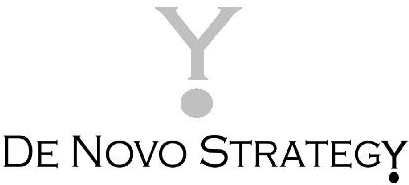An insightful article I read in the Marriott Alumni Magazine stated that an organizations need to have three traits in their culture to thrive. First, a little background.
Growing Corn
Each semester Stan Fawcett, holds up a fresh ear of corn in his supply chain strategy class and asks, "Do farmers grow corn in Iowa?" The students with puzzles looks wonder why the professor would ask such a straightforward question. Fawcett's response is "No." Farmers don't grow corn, "the corn grows itself. Farmers clear the trees, remove the rocks, plow the fields and provide irrigation. Then they add pesticides, fertilizer and all those other things that lead to a bounteous harvest. The farmers' job is to create the environment where the corn can flourish."
This may sound simple, but as managers and leaders, our job is to create a work environment where our employees can grow and flourish in their jobs. By doing this can provide the right conditions to achieve maximum potential and productivity from each employee. The research team from the Marriott School Professors, determined that there are three critical ABC's - affirmation, belonging, and competence.
Affirmation
Creating opportunities to let all employees know that they are valued helps to satisfy the need in all of us for approval. Everyone wants to feel appreciated for their work and efforts to help the business succeed. Fawcett says, "Managers need to look for opportunities to express appreciation."
Professor Dave Whitlark says, "Employees also feel affirmed when they feel like problem solvers in their organization." As well as helping them "view criticisms as opportunities to help them succeed. One difficult job leaders have is to correct people when they are wrong." In addition, "create an environment where employees accept correction and even look forward to it because they know you want to help them."
Belonging
The second element of a thriving corporate culture is the sense of belonging; it refers to people's need to feel socially connected to coworkers and to the organization itself. Belonging leads to higher quality service and productivity.
Professor Gary Rhoads says, "You can scream at employees, and you can threaten them so they're productive, but if you want them to give quality service, you have to capture their hearts. When productivity goes up, quality doesn't always follow, but when quality goes up, productivity always follows."
Competence
The third element is competence. Rhoads says it this way, "You either lift people up, or tear them down; I'm always surprised how many people take the teardown approach. And the way supervisors tear down employees is they peck away at their competence."
Building confidence can come from simple things like providing extra training, and letting employees be in control of their work performance. In house training by other employees, utilizing outside consultants, helping employees go back to school or sending them to a conference, this investment in education strengthens their competence.
Another method is to have a newbie shadow a veteran for a short period. This tells the trainer that the company has confidence in their performance and it says, "you're a great role model ... and what does the new person learn? A lot from someone an enthusiastic employee. This arrangement actually accelerates the learning curve."
By building corporate culture that effectively uses the three traits, employees become more productive, quality improves and loyalty is developed.
Fawcett smiles when he says, "When ... a manager understands and captures the vision of the ABC's, makes people feel valued, creates a sense of belonging, empowers them through competence, and then unleashes them to solve the world's problems, it's awesome."
To download a full copy of the magazine article paper click: ABC's


